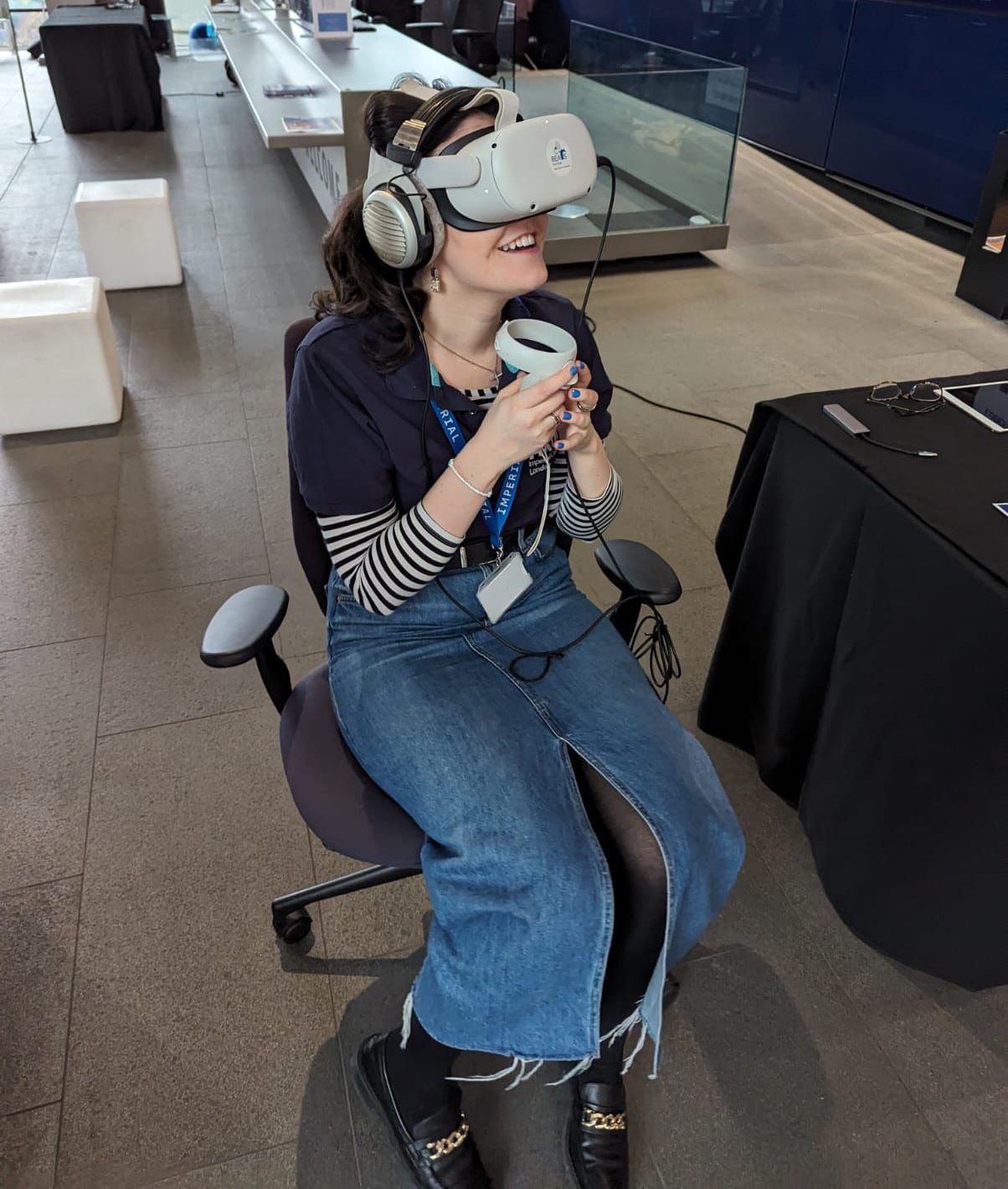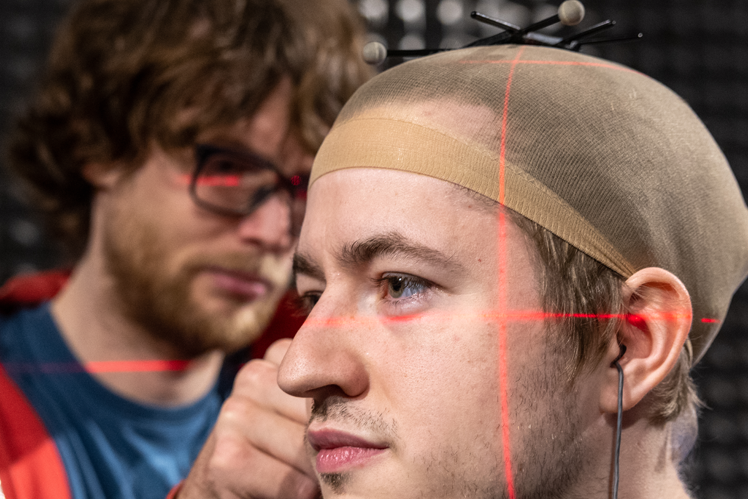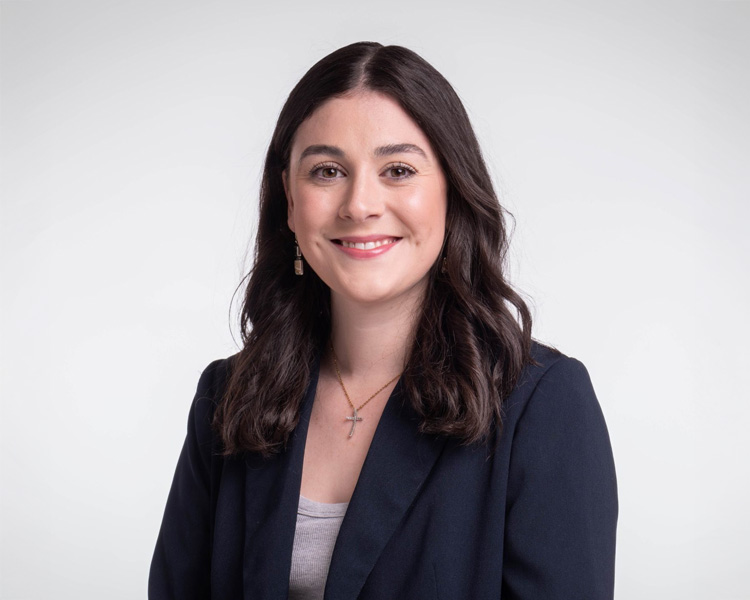In profile: Alexandra Rayner
Meet Alexandra (Ally) Rayner. Ally is the Communications Manager for the SONICOM project. Hailing from Australia, Ally has lived in the UK for four years and worked at Imperial College London for the past two. She holds a Bachelor of Arts with a major in Public Relations and Marketing from Macquarie University in Sydney, Australia.
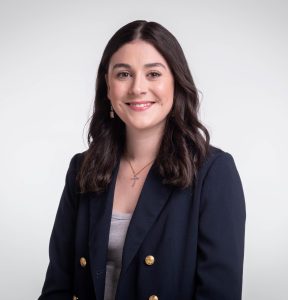
Get in touch with Ally via LinkedIn or follow on X
Ally’s work and career
- What are you working on in SONICOM: in the past, now, or soon?
I stepped into the role of Communications Manager for SONICOM in June 2025, after supporting the project in various capacities for the previous 18 months. As SONICOM enters its final year, it’s an especially exciting time to be leading communication and dissemination efforts.
Alongside my regular activities, such as writing news stories for the website and creating social media content, I’m also planning a special engagement event to celebrate the project’s conclusion. I can’t reveal too much just yet, but let’s just say…keep your eyes peeled!
- Did you have a role model that influenced your career pathway?
Both of my parents are teachers, and beyond their profession, they’ve always been examples of people who truly love what they do. Watching them find purpose and joy in their work taught me the importance of pursuing a career that not only brings personal fulfilment but also makes a positive difference in the world. From an early age, I knew I wanted my own career to reflect those same values.
- What is your scientific background?
I’m not a scientist! In fact, I didn’t study any science subjects beyond Year 10, so it often makes me smile to think about how I’ve ended up in this role. It’s a great reminder that curiosity, communication, and a willingness to learn can open unexpected pathways, even into the world of science.
- What is a typical day like for you?
There is no such thing as a typical day in my work, cliché, I know! I could go from sitting at my desk crafting a news story to sharing new findings from one of the researchers in SONICOM’s work, to being a guinea pig for one of those experiments, the very next day. I’ve travelled to Milan, Italy, for SONICOM’s annual meeting and put together an engagement activity in London, UK. I’m constantly learning something new, meeting interesting people and being encouraged to think outside the box.
- What are the hardest parts related to your work?
I’d say the most challenging aspect, particularly when I first started, was getting to grips with the complex scientific terms and concepts that were initially beyond my understanding. I often wondered what unique value I could contribute in a room full of such highly knowledgeable people. Over time, though, I’ve realised that my strengths: creativity, communication, and the ability to engage others, bring a different but equally important perspective. Now, I focus on leveraging those skills to complement the technical expertise around me.
- During your career, have you been specifically mentored or supported by someone?
Harry Jenkins was the previous Communications Manager for SONICOM and was absolutely brilliant at what he did. I was very lucky that I got to work alongside him for 18 months and ‘learn the ropes’ so to speak.
- What is the funniest or most memorable thing that has happened to you while working in science?
No words needed…
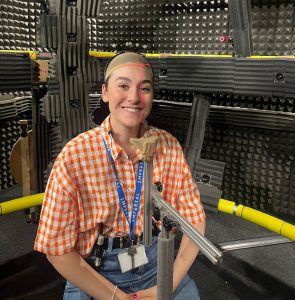
- What (or who) motivated you in difficult times?
Honestly, I’m motivated by the researchers I work alongside. I’m not just saying that to flatter them; they’re genuinely brilliant people. Being in the same room with such sharp, curious minds pushes me to keep learning and do my best work, even when times get busy or stressful.
On being a woman in science
- How do you feel the current environment is for women in science?
I think the environment for women in science has improved, though there’s still progress to be made. When I was in high school (2012–2016), I was fortunate to attend an all-girls school where we were encouraged to pursue whatever subjects inspired us, including science. Growing up with two older sisters also gave me a strong sense of confidence and support. Because of that environment, I was somewhat shielded from the sexism that women in STEM often face, at least until later on.
- Where do you see women in science in 10 years’ time?
Doing what they’ve always been capable of but might not have always had the opportunity to do…anything and everything they set their minds to.
- In your opinion, which changes, if any, are needed in the scientific system to engage more women in science and create more future female scientists?
I do not doubt that women will continue to break barriers and excel in STEM fields. However, lasting change requires more than individual determination; it also depends on men actively speaking out against the prejudice and inequities that persist in the scientific community. By addressing these issues collectively, we can build a more inclusive environment that inspires and supports future generations of female scientists.
Outside the lab
- Do you come from an academic family?
Actually, both my parents were the first in their families to graduate from university. My mum earned her BA in English, and my dad has a BA in Chemistry and an MA in Education Leadership.
- If you had the option to give advice to a younger version of yourself, what would that be?
You have so much time, just breathe and enjoy the ride.
